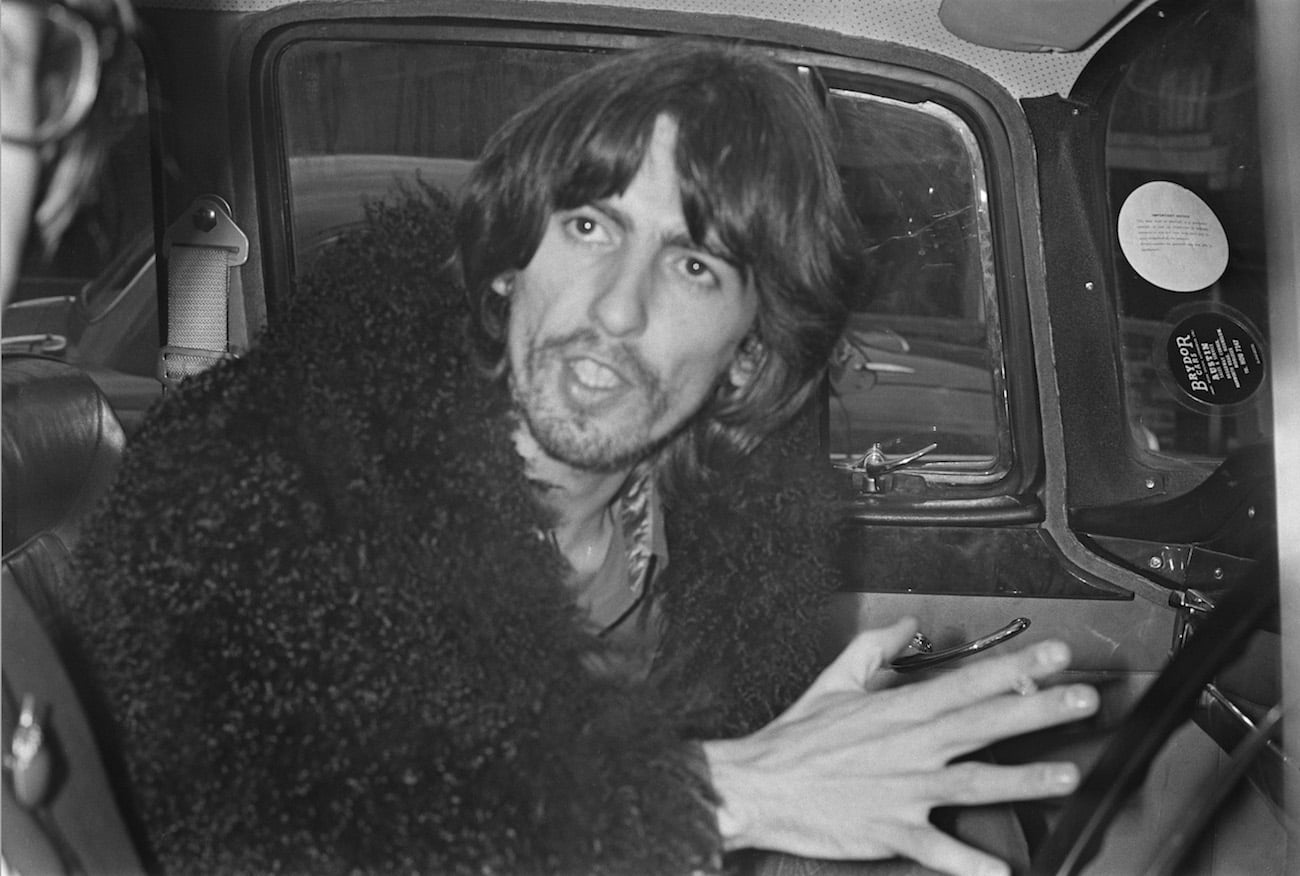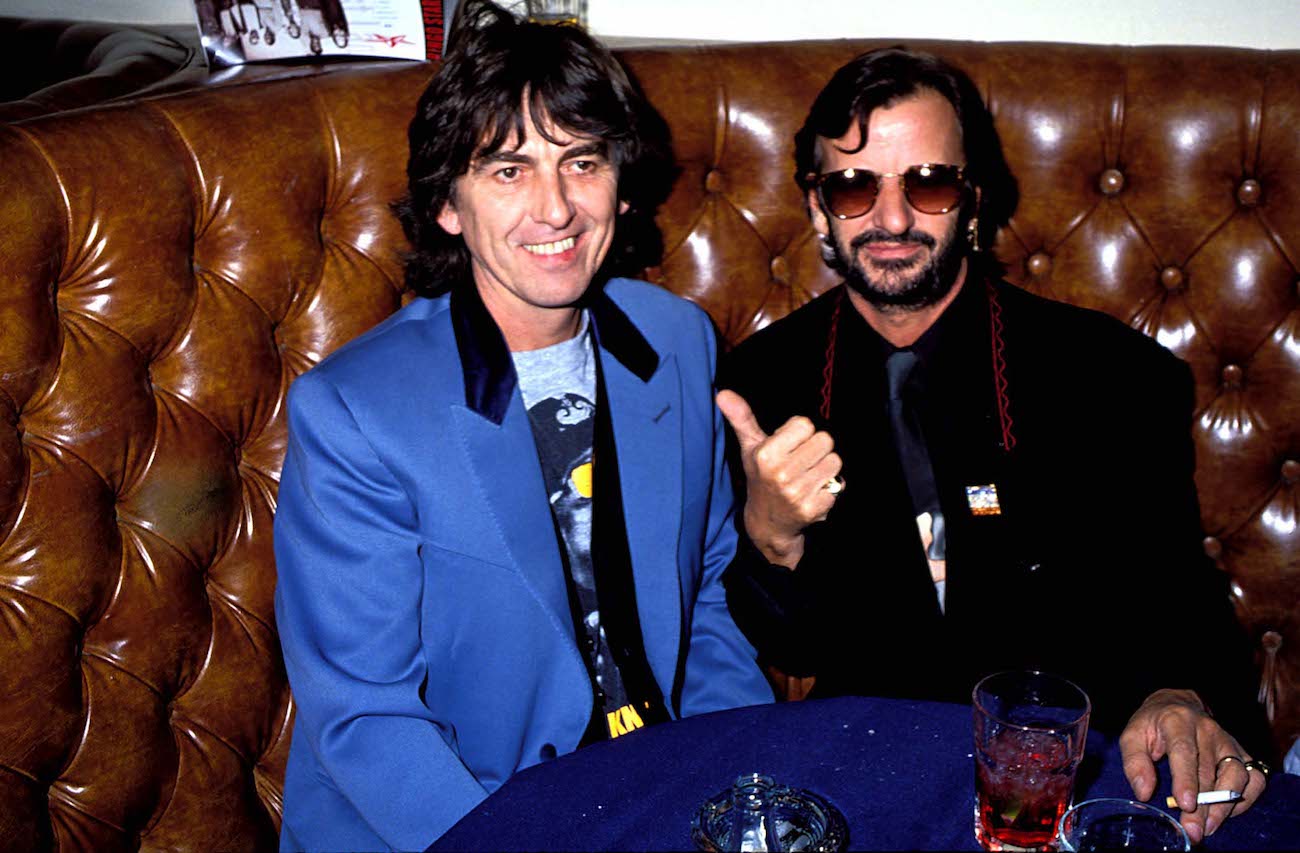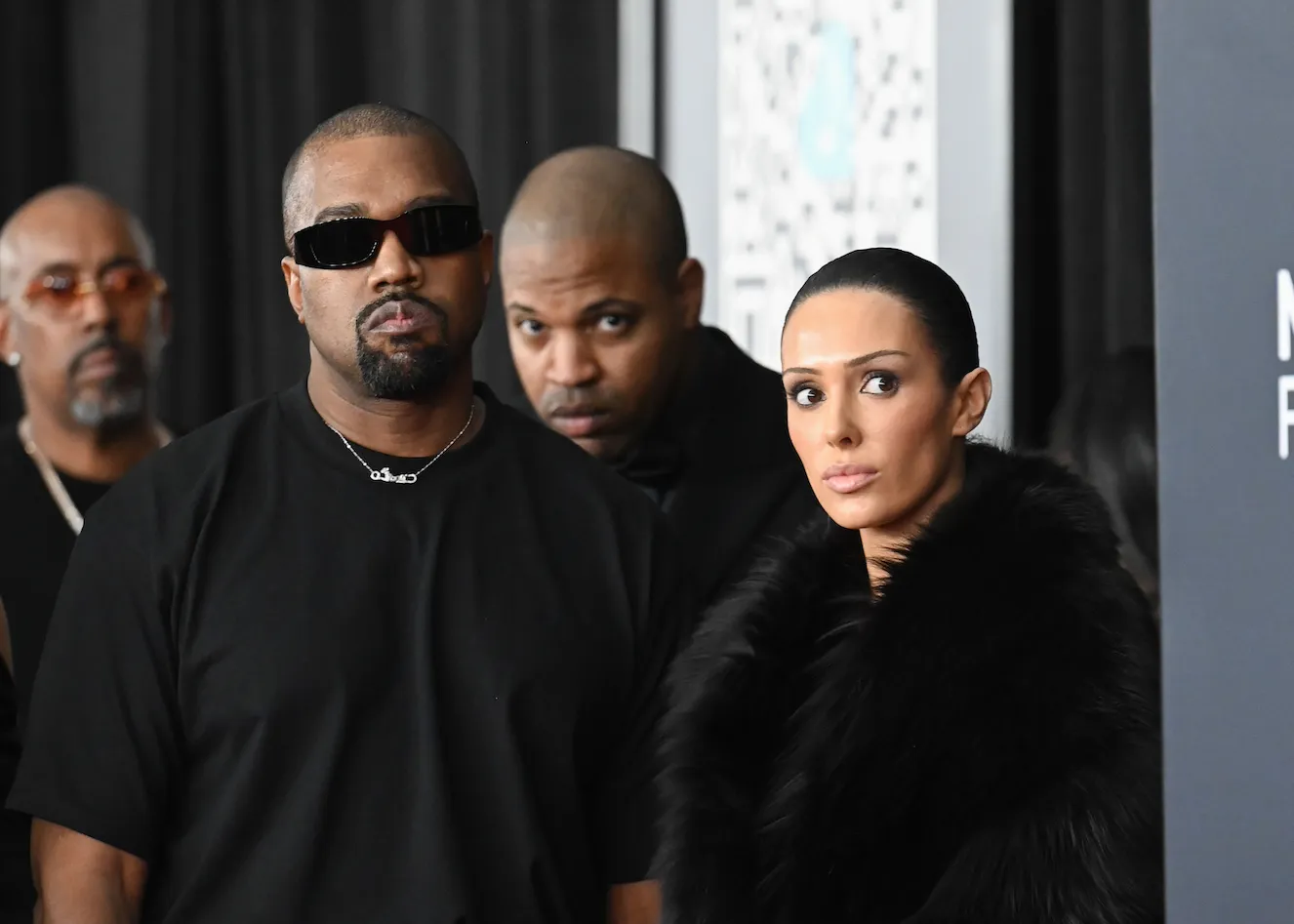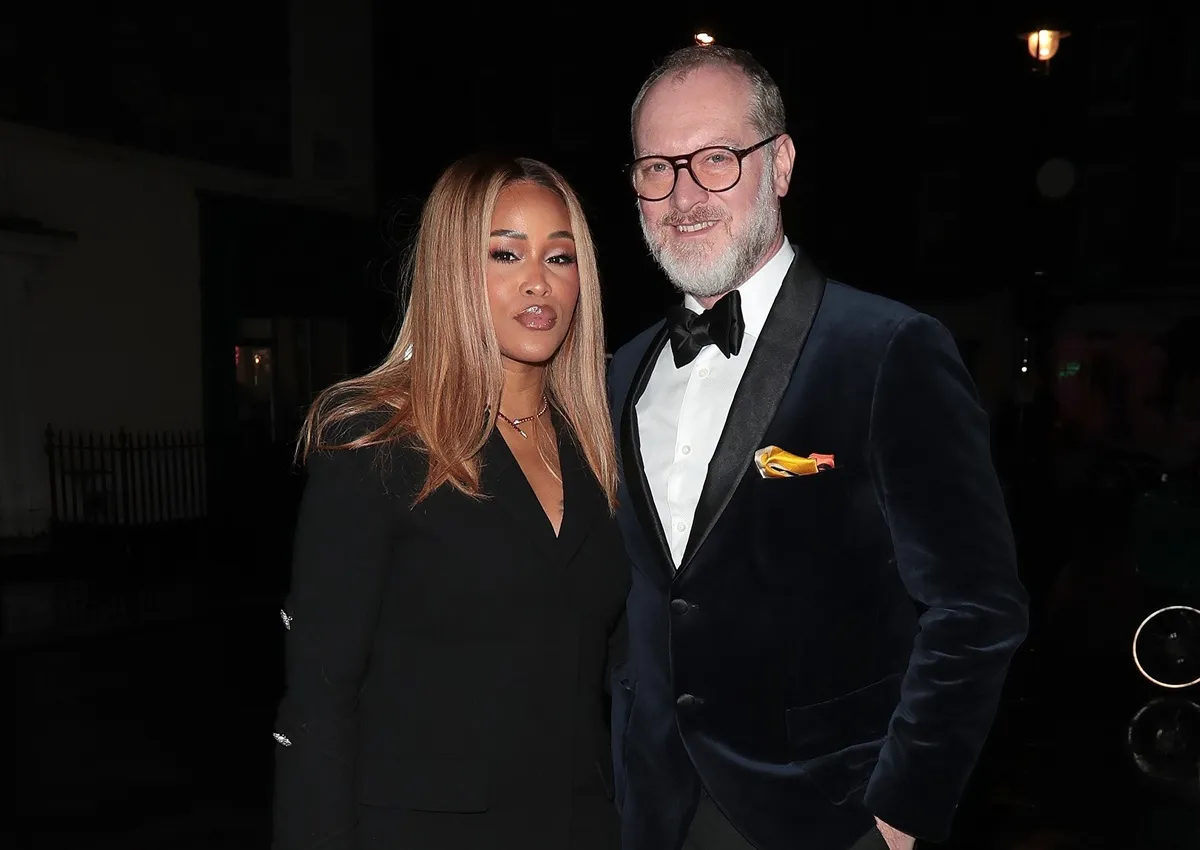
Ringo Starr Said George Harrison Had the ‘Love-Bag-of-Beads Personality and the Bag of Anger’: ‘He Was Very Black-and-White’
Ringo Starr claimed George Harrison had a “love-bag-of-beads” personality, but also “the bag of anger” one. The Beatles’ drummer said his bandmate was “very black-and-white.” However, George’s wife, Olivia, claimed he never “compartmentalized his moods.”

How the former Beatle’s personality formed
George grew up very sure of himself. In George Harrison: Behind the Locked Door by Graeme Thomson, George’s first wife, Pattie Boyd, said, “He was very secure within himself, and you only really get that security from a very tight and loving family as a child.”
George’s personality stemmed from what his parents taught him during childhood. Harold Harrison taught him good work ethics and to be a valuable member of society.
Meanwhile, even though the family didn’t have much money, Louise Harrison always “made sure we knew we weren’t peasants, that we came from educated stock and had great potential in life,” George’s sister, Louise, told Joshua M. Greene in Here Comes The Sun: The Spiritual And Musical Journey Of George Harrison. “She taught us to think, to question things, to always be kind, never kowtow to big shots or lord over the lowly.
“We were never to cringe in fear but neither were we to become bullies toward anyone. And we took care of one another. If there was only one apple, we’d each get a quarter.”
Growing up in Liverpool had also given George his “mix of cheek and charm and forthrightness, his dry wit, love of wordplay, his dislike of the ‘bulls***‘ which he, in later times, seemed to smell almost everywhere,” Thomson wrote. George remained “stubborn, wickedly funny, irreverent, thoughtful, brooding, inclusive, independent, oddly embittered, cocky, lustful, a playful glint rarely far from his eye.”
George was also direct and made eye contact, even later, during some of the most awkward interviews. All of this meant he was confident, had nothing to hide, and was authentic in everything he did.
George had a complex personality.
Ringo Starr said George Harrison had a black-and-white personality
When The Beatles became famous, George was confused about his stardom. It was the first time something about himself puzzled him. “He really couldn’t understand why he was such a famous worldwide musician,” Boyd said.
“It was always a bit confusing to him. He started looking at himself and started to question why he, this boy from Liverpool who was probably destined to be in some quite lowly job, had been thrust out there to become so well known.”
Not knowing why he was famous was one of the reasons George embarked on a lifelong journey for answers, bringing him to spirituality. However, before all that happened, George began hating his fame. He didn’t like that he couldn’t go out and be himself. According to Ringo, George dealt with stardom like he did everything else. It was either black or white.
In Martin Scorsese’s documentary, George Harrison: Living in the Material World, Ringo said, “Well, George, you know, George had two incredible separate personalities. He had the love-bag-of-beads personality and the bag of anger. He was very black-and-white.”
George would’ve agreed with Ringo’s assessment of his personality
The guitarist often claimed he was a classic Piscean: “black and white, yin and yang, hot and cold,” Thompson wrote. So, George would’ve agreed with Ringo’s assessment of his personality.
“In certain company he could be loud, extrovert, aggressive and confrontational,” Thompson continued. “Paul McCartney’s earliest impressions were of ‘a cocky little guy with a good sense of himself; he wasn’t cowed by anything.’
“At other times he would be thoughtful, with a shyness that could be both soulful and surly. One schoolmaster recalled him as ‘a very quiet if not even introverted little boy who would sit in the furthest corner and not even look up. I’m not saying he was unintelligent, but [he] hardly ever spoke.'”
The press dubbed him the quiet Beatle, but friends like Tom Petty said he never shut up. Boyd said he veered between “periods of intense meditation and heavy partying,” Rolling Stone wrote. Petty also revealed George could be cynical when he wanted to be but was always humorous about it. Ultimately, the former Beatle never let his pessimism turn into bitterness, anger, or hatred.
“Well, I think I’ve become a bit more balanced over the years. I’m still a bit extreme being a Pisces,” George told VH1 in 1988. “I’m either all this way or all that way, but I’ve tried, over the years of bringing both extremes closer to the middle and I think that’s really what it is to try to-I mean I retained all the things I believe and that I’ve felt in the past or that I’ve said in the past except now it’s getting a bit more-it’s been in there longer, and it’s getting a bit more mature, and I don’t shout about it so much.”
However, Rolling Stone wrote that George was “fond of repeating a phrase he attributed to Mahatma Gandhi — ‘Create and preserve the image of your choice’ — which is odd, because his choice seemed to be no image at all.”
George’s wife, Olivia, claimed he didn’t see in black and white. “George didn’t see black and white, up and down as different things,” she said. “He didn’t compartmentalize his moods or his life. People think, oh, he was really this or that, or really extreme. But those extremes are all within one circle. And he could be very, very quiet or he could be very, very loud.”
So, maybe it was as Rolling Stone said; George had no image. He was everything all at once, an enigma, a walking contradiction who often had contradictory views. At the same time, George had a perfect sense of self and found his true self through meditation and spirituality, some of the only things that really interested him.


